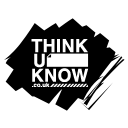e-Safety is an important part of keeping children safe
We can only be successful in keeping children safe online if we work with you, the parents, to ensure the e-Safety message is consistent. It is important that parents speak to their children about how they can keep safe and behave appropriately online
Please note that no search engine is ever 100% safe, but below provides some links to some “safer” search engines for images for your child's homework projects...
Gaming
When children are accessing games via Xbox LIVE, privacy settings can be set up. To read more, click here.
Websites for more information
Please click on the icon to go to the relevant site

CEOP (The Child Exploitation and Online Protection Centre) delivers a multi-agency service dedicated to tackling the abuse and exploitation of children in the real and ‘e’ world. Often it is referred to as an online 999. By clicking on the button, young people and parents can get advice on a range of issues such as viruses, hacking and dealing with bullying online.
Vodafone have produced a Digital Parenting Magazine which informs parents about the various technologies children are accessing today. There is information on Facebook settings, Xbox 360 settings, Blackberry settings, jargon busting and many more 'How to Guides'. They are well worth a read and some are attached below for you to download.

The “Thinkuknow” website is brought to you by the Child Exploitation and Online Protection (CEOP) centre

Kidsmart gives you lots of advice on how to stay safe online
Internet Matters is a new online portal designed for parents to access simple, easy and practical advice about online safety for their children, right through from pre-school to teens. It provides tips on protecting children from online grooming, cyberbullying, privacy and identity theft and inappropriate content. Internet Matters is a not-for profit organisation set up by BT, Sky, TalkTalk and Virgin Media
ParentINFO is a collaboration between ParentZone and CEOP. There are useful guides and articles on helping your child stay safe online
More Online Links
S – SMART
Keep safe by being careful not to give out personal information when you’re chatting or posting online. Personal information includes your email address, phone number and password.
M – MEETING
Meeting someone you have only been in touch with online can be dangerous. Only do so with your parents’ or carers’ permission and even then only when they can be present. Remember online friends are still strangers even if you have been talking to them for a long time.
A – ACCEPTING
Accepting emails, IM messages, or opening files, pictures or texts from people you don’t know or trust can lead to problems – they may contain viruses or nasty messages!
R – RELIABLE
Someone online might lie about who they are and information on the internet may not be true. Always check information with other websites, books or someone who knows. If you like chatting online it’s best to only chat to your real world friends and family
T – TELL
Tell your parent, carer or a trusted adult if someone or something makes you feel uncomfortable or worried, or if you or someone you know is being bullied online.

